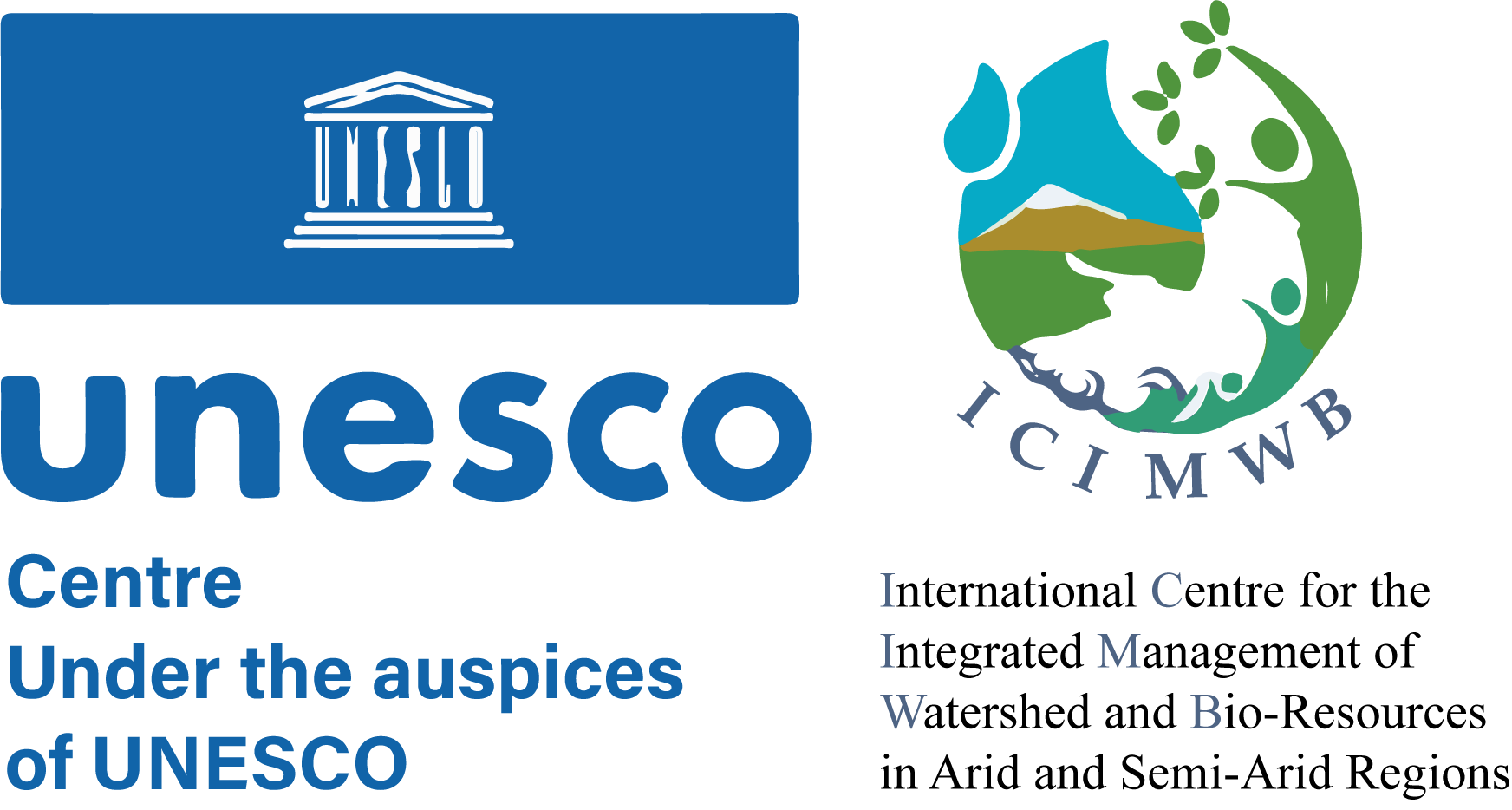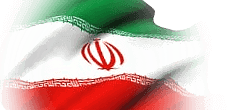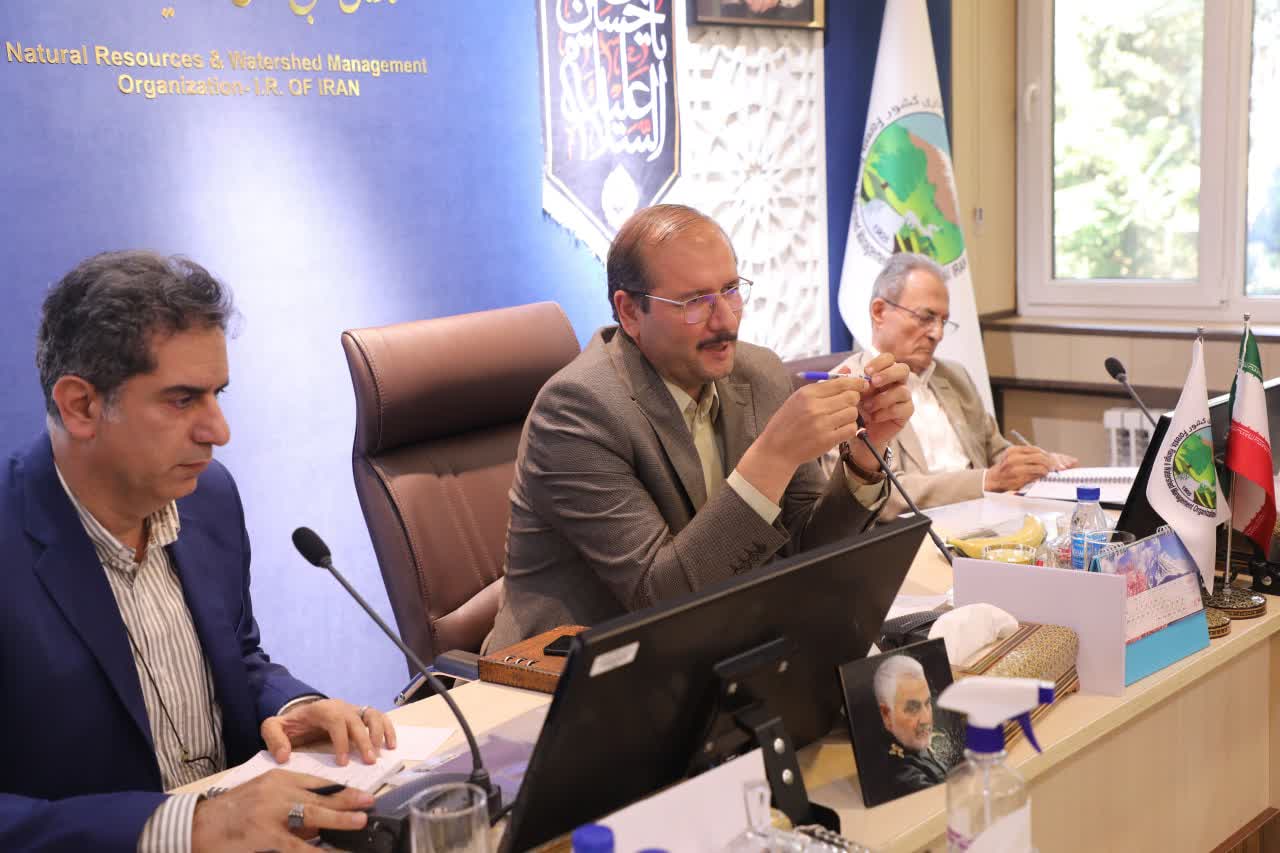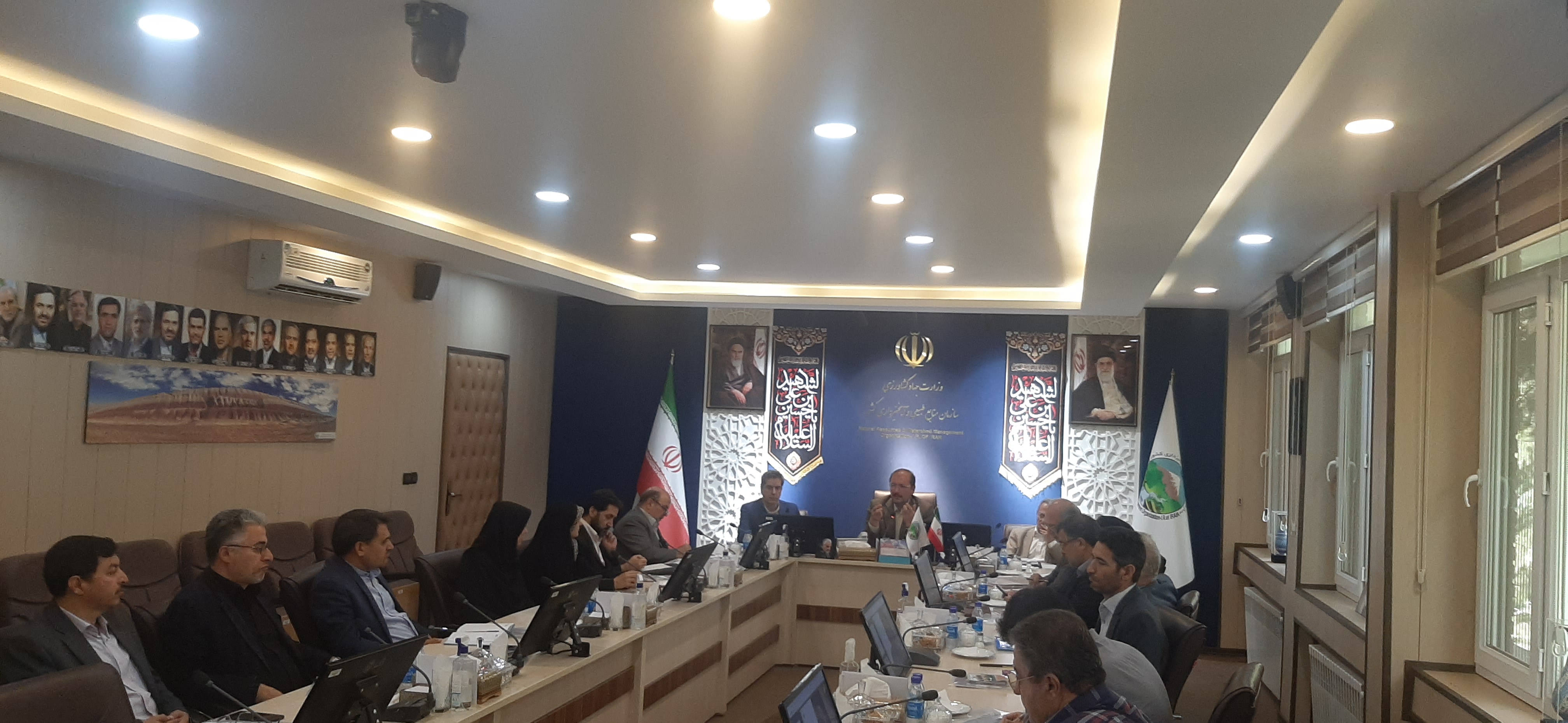







Final Details
Aras UNESCO Global Geopark
2024,01,20
International Literacy Day
2024,01,10
Information Note
2024,01,05
United Nations sustainable development cooperation framework with Iran
2023,09,22
AGREEMENT BETWEEN THE UNITED NATIONS EDUCATIONAL SCIENTIFIC AND CULTURAL ORGANIZATION (UNESCO) AND THE GOVERNMENT OF THE ISLAMIC REPUBLIC OF IRAN
2024,04-20
The first session of the Strategic Council
The first session of the Strategic Council for Integrated Watershed Management was held today - Wednesday, August 14th

This session was held with the presence of Dr. Vahid, the acting director of the National Natural Resources Organization, managers from the Watershed Management Deputy, and a number of university professors, the Forest and Rangeland Research Institute, and the Soil Conservation and Watershed Management Research Center at the location of the National Natural Resources Organization
According to the Public Relations Center of the Natural Resources and Watershed Management Organization, Dr. Vahid stated in this meeting: Collaboration and synergy between execution, policymaking, and academia are very beneficial in advancing the goals of natural resources. The presence of members from various research and academic sectors can guide sustainable land management in the right direction.
Vahid added: The Integrated watershed management is addressed in the seventh development plan, and the organization's program and budget have directly intervened to focus heavily on natural and biological resources.
The acting director of the National Natural Resources and Watershed Management Organization enumerated the significant potential and capacity of the forest, pasture, and desert regions as crucial resources. He stated: Good coordination has not been established with watershed residents, and on the other hand, climate change and the implementation of some unbalanced public and civil projects in the field of natural resources have posed challenges in the environmental sector today.
Effective natural resource management requires a proper strategy!
Vahid also recalled: Today, we are facing challenges in the "Sistan" and "Aras" watersheds and in 25 million hectares of border watershed areas, which require proper management strategies in these areas. The International Center for integrated Watershed Management can play an influential role in these matters.
Vahid mentioned that there are around 240 million hectares of critical wind erosion zones around our country, and 14 million hectares of desertification zones are within our borders, with concentrated dust storms from the "ghara ghum" desert of Turkmenistan affecting not only the cities in Golestan province but also the east of Mazandaran province. To tackle these environmental challenges and land degradation, part of which is related to desertification and climate change conventions, and some zones are within the country that require comprehensive watershed management attention.
There is no way other than protecting natural resources!
Continuing his remarks in the first session of the Strategic Council of Comprehensive Watershed Management, Dr. Vahid emphasized: Land degradation, desertification, soil erosion, land subsidence, and decline in groundwater tables are significant challenges in natural resources and the environment today and are expanding. We have no solution other than natural resource conservation, especially forests and pastures, to address the current situation.
He noted that the annual rainfall volume in the country is approximately 400 billion cubic meters, of which only a quarter, about 100 billion cubic meters, is accessible, while the remaining 300 billion cubic meters are lost due to evaporation and other factors beyond our reach.
Moreover, in the continuation of his remarks, he stated that a crucial aspect of comprehensive watershed management is coherence, where the International Center for Comprehensive Management can connect solutions and experiences inside and outside the country to aid in reducing water evaporation and removal.
The acting director of the National Natural Resources and Watershed Management Organization emphasized the foundation of sustainable planning in natural resource areas and the necessity of national and international strengthening and leveraging the significant capacities and experiences existing in the country.
The Strategic Council is the powerful section of the International Center for Integrated Watershed Management
Dr. Hamid Nouri, the head of the International Center for Comprehensive Watershed Management and Biological Resources in Arid and Semi-Arid Regions, considered the strategic council as the powerful arm of the International Center for Comprehensive Watershed Management and declared: This council requires cooperation and coordination between the institutions and organizations that play a role between and paying attention to climate change, biodiversity and desertification requires the participation and synergy of these institutions.
Dr. Noori, who was presenting his PowerPoint online for the attendees of this meeting and outside the meeting, pointed to the cooperation agreement between the International Watershed Management Center and the Faculty of Natural Resources of Tehran University and added: Based on this agreement, the first climate change park UNESCO has been established in Iran.Nouri continues his presentation by stating that the Faculty of Natural Resources of Tehran University has been introduced as one of the specialized committees of the center in the education department, to carry out joint cooperation in the field of applied research, scientific conferences and monitoring and evaluation of natural resource areas affected by the phenomenon of climate change in order to reduce Vulnerability and promotion of adaptation and resilience of the affected sectors were emphasized
Integrated Watershed Management should be the basis of sustainable planning in the field of natural resources
In the continuation of the first meeting of the strategic council of integrated watershed management, Dr. Hassan Ahmadi, the head of the Department of Agricultural Sciences, mentioned the attention to the integrated management of the watershed as the basis of sustainable planning in the fields of natural resources and the necessity and strengthening of national and international as well as the use of experiences. and emphasized the significant capacities that exist in the country
This university professor welcomed the initiatives taken in establishing the Climate Change Park in Talqan, emphasizing the identification and assessment of indigenous knowledge processes and the use of the Academy of Sciences' capacity as crucial.
In this meeting, heads of relevant specialist committees from the International integrated Watershed Management Center at Gorgan University, Tarbiat Modares University, Tehran University, and the Soil Conservation and Watershed Management Research Center, as well as other members of the Strategic Council from the Ministry of Foreign Affairs, UNESCO, and other strategic council members, presented their proposed plans in line with the missions outlined in the council's resolutions.



![]() ارسال به دوست
ارسال به دوست
Specialized Session of the International Center for Integrated Management of Watershed and Bio-Resources in Arid and Semi-Arid Regions 1403/11/3
Specialized Session of the International Center for Integrated Management of Watershed and Bio-Resources in Arid and Semi-Arid Regions 1403/11/3
The option to download the climate change glossary has been made available through the UNDP website. 1403/10/16
International Center Meeting with the Agricultural and Natural Resources Research and Training Center of Khuzestan Province and the Khuzestan Water an 1403/10/16
The fifth specialized meeting on Integrated Watershed Management and Biological Resources was held. 1403/10/16
Dr. Mahdi Kamali, Speaker at the Fourth Specialized Meeting on Integrated Watershed Management 1403/10/16
Holding the Thirteenth National Conference on Rainwater Harvesting Systems in Iran 1403/10/16
The success of World Soil Day Depends on Your Participation! 1403/10/16
A Memorandum of Understanding (MOU) was signed with the International Research and Training Center on Erosion and Sedimentation (IRTCES) in China. 1403/10/16
پیش بینی وضعیت دما و بارش کشوردر فصول پاییز و زمستان سال جاری 1403/10/16
The National Program and Budget Organization is pursuing effective management measures in the Atrak watershed. 1403/10/16
Integrated Watershed Management in the Work Plans of the Minister of Agricultural Jihad 1403/10/16
International Research and Training Center on Erosion and Sediment Control (IRTSEC) in China 1403/10/16
Management Estimation of 16 trillion tomans for implementing watershed management on 4 million hectares 1403/10/16
Commemorating the 40th anniversary of the establishment of the International Research and Training Center on Erosion and Sedimentation (IRTCES) 1403/10/16
Dr. Hamid Nouri's Membership in the Climate Change Committee of the Ministry of Agriculture 1403/10/16
The first session of the Strategic Council for Integrated Watershed Management was held today - Wednesday, August 14th 1403/10/16
Holding the second specialized with the title of Applied Analysis of Integrated Management of Watershed 1403/8/6
The first session from a series of specialized sessions 1403/8/6
The inaugural session of the series of specialized workshops 1403/8/6